
Gaborone: The Heartbeat of Botswana
Gaborone, the capital city of Botswana, is a blend of modernity and rich cultural heritage. Nestled between the hills and the Notwane River, this bustling city offers a unique glimpse into Botswana's rapid development and traditional roots. From its vibrant markets to its serene nature reserves, Gaborone is a treasure trove waiting to be explored. A visit to Gaborone is incomplete without exploring the Gaborone Game Reserve. This urban wildlife sanctuary is home to a variety of animals, including zebras, wildebeests, and a plethora of bird species. It's an ideal spot for a family picnic or a leisurely afternoon of wildlife viewing. For history enthusiasts, the National Museum and Art Gallery is a must-see. It houses an impressive collection of artifacts and artworks that narrate the story of Botswana's rich history and diverse culture. The Three Dikgosi Monument is another historical landmark that stands as a tribute to the three tribal chiefs who played a pivotal role in Botswana's independence. Gaborone's markets and shopping malls offer a delightful mix of traditional crafts and modern goods. The Main Mall is the city's shopping and commercial hub, where visitors can find everything from local crafts to international brands. Don't miss the vibrant stalls of the Botswana Craft, where artisans sell beautiful handcrafted items that make perfect souvenirs. Dining in Gaborone is a gastronomic adventure. The city boasts a variety of restaurants that serve both local and international cuisine. Be sure to try traditional dishes like seswaa (shredded beef) and pap (maize porridge) for an authentic taste of Botswana. With its welcoming people, rich culture, and modern amenities, Gaborone is a captivating destination that promises an unforgettable experience for every traveler.
Local tips in Gaborone
- Visit the Gaborone Game Reserve early in the morning or late afternoon for the best chances to spot wildlife.
- Wear comfortable shoes when exploring the Main Mall, as it covers a large area with plenty of shops and stalls.
- Check out the local food markets for fresh produce and traditional snacks.
- If visiting during the summer months, carry sunscreen and stay hydrated as temperatures can be quite high.
- Use local taxis or car rentals to get around the city, as public transportation options are limited.
Gaborone: The Heartbeat of Botswana
Gaborone, the capital city of Botswana, is a blend of modernity and rich cultural heritage. Nestled between the hills and the Notwane River, this bustling city offers a unique glimpse into Botswana's rapid development and traditional roots. From its vibrant markets to its serene nature reserves, Gaborone is a treasure trove waiting to be explored. A visit to Gaborone is incomplete without exploring the Gaborone Game Reserve. This urban wildlife sanctuary is home to a variety of animals, including zebras, wildebeests, and a plethora of bird species. It's an ideal spot for a family picnic or a leisurely afternoon of wildlife viewing. For history enthusiasts, the National Museum and Art Gallery is a must-see. It houses an impressive collection of artifacts and artworks that narrate the story of Botswana's rich history and diverse culture. The Three Dikgosi Monument is another historical landmark that stands as a tribute to the three tribal chiefs who played a pivotal role in Botswana's independence. Gaborone's markets and shopping malls offer a delightful mix of traditional crafts and modern goods. The Main Mall is the city's shopping and commercial hub, where visitors can find everything from local crafts to international brands. Don't miss the vibrant stalls of the Botswana Craft, where artisans sell beautiful handcrafted items that make perfect souvenirs. Dining in Gaborone is a gastronomic adventure. The city boasts a variety of restaurants that serve both local and international cuisine. Be sure to try traditional dishes like seswaa (shredded beef) and pap (maize porridge) for an authentic taste of Botswana. With its welcoming people, rich culture, and modern amenities, Gaborone is a captivating destination that promises an unforgettable experience for every traveler.
When is the best time to go to Gaborone?
Iconic landmarks you can’t miss
Riverwalk Mall
Discover a tranquil shopping experience at Riverwalk Mall in Gaborone, blending retail therapy with serene riverside views and diverse dining.
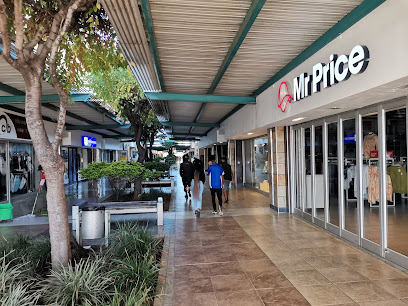
Peermont, The Grand Palm
Experience luxury & entertainment at Gaborone's Grand Palm: premier resort with casino, dining, convention center & relaxing amenities.

Mokolodi Nature Reserve
Discover Botswana's wildlife and conservation efforts at Mokolodi Nature Reserve, a short drive from Gaborone, offering diverse activities and animal encounters.
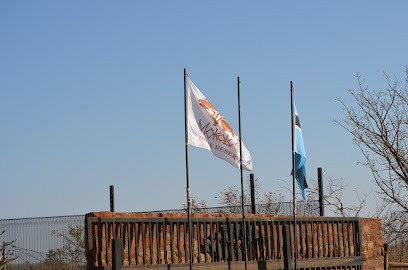
Optico Center Gaborone
Experience quality eye care and diverse shopping at Optico Center Gaborone, a landmark in the heart of Botswana's capital.
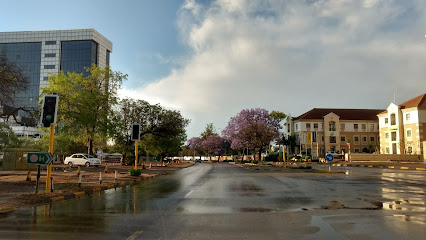
Sir Seretse Khama International Airport
Experience a seamless entry to Botswana's beauty and culture at Sir Seretse Khama International Airport in Gaborone.
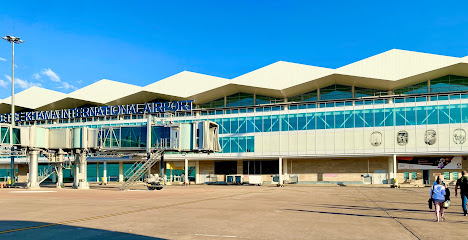
Lion Park Resort
Experience thrilling water slides, amusement rides, and family fun at Lion Park Resort, Gaborone's ultimate destination for adventure seekers!
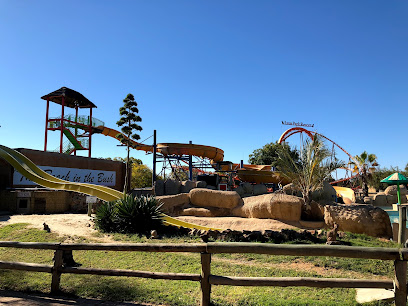
The Three Dikgosi Monument
A tribute to Botswana's founding fathers, the Three Dikgosi Monument stands as a symbol of unity and independence in the heart of Gaborone.
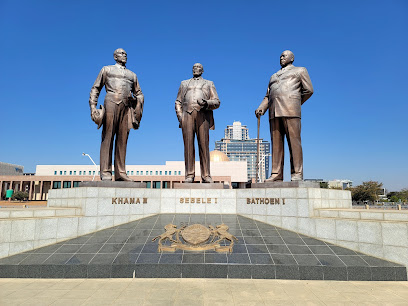
Tsholofelo Park
Escape to Tsholofelo Park in Gaborone: A tranquil retreat with lush greenery, playgrounds, and community events for a refreshing experience.
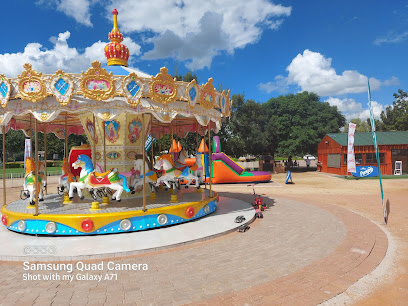
University of Botswana Indoor Sports Centre
A state-of-the-art sports complex at the University of Botswana offering diverse athletic activities, events, and fitness programs for all.
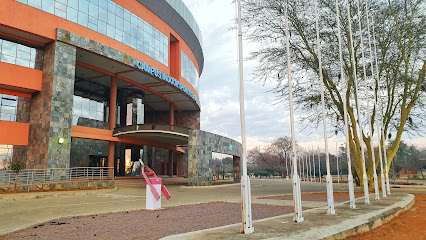
Gaborone Yacht Club
Experience waterfront dining, water sports, and breathtaking sunsets at Gaborone's unique social and recreational hub on Gaborone Dam.
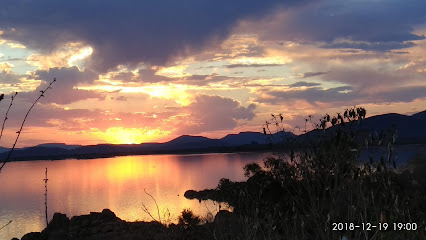
National Museum and Art Gallery
Discover Botswana's rich history, art, and natural heritage at the National Museum and Art Gallery in Gaborone. A cultural journey awaits!
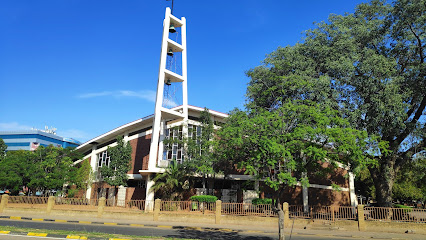
Christ the King Cathedral
Discover the spiritual heart of Gaborone at Christ the King Cathedral, a beacon of faith, history, and community in Botswana.
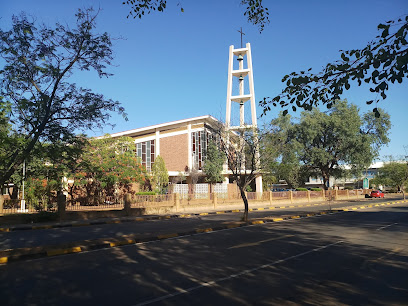
Crocodile Pools River Safaris & Chalets
Experience Botswana's wildlife with river safaris, cozy chalets, and family-friendly activities near Gaborone.
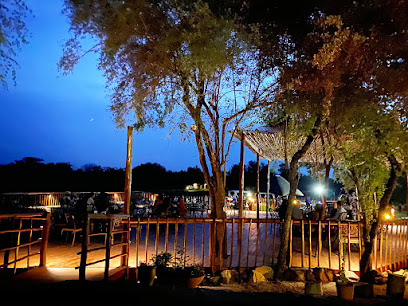
Jamia Mosque
Discover the architectural beauty and tranquil atmosphere of Gaborone's Jamia Mosque, a cultural landmark and spiritual center.
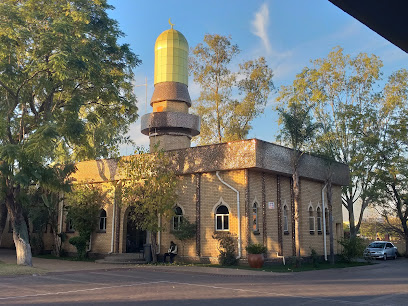
National Botanical Garden
Discover Botswana's indigenous flora and natural heritage in a tranquil riverside setting, just minutes from Gaborone's city center.
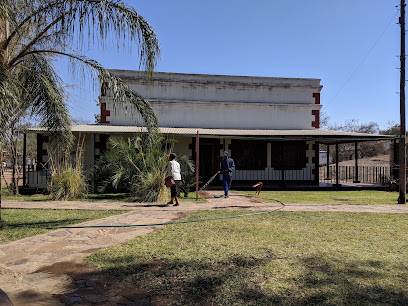
Unmissable attractions to see
Mokolodi Nature Reserve
Experience Botswana's wildlife and support conservation at Mokolodi Nature Reserve, just a short drive from Gaborone.
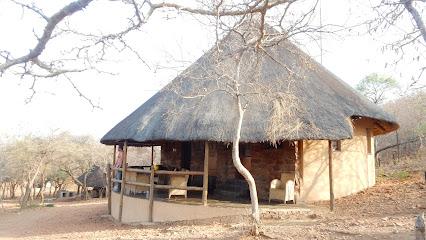
Botswana Craft
Discover Botswana's artistic soul at Botswana Craft: Handmade crafts, cultural events, and traditional cuisine in the heart of Gaborone.
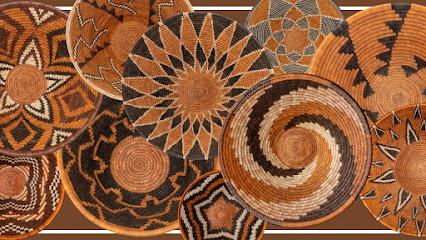
Madikwe Game Reserve
Discover Madikwe Game Reserve: A malaria-free safari destination with diverse wildlife, rich history, and exclusive game viewing experiences in South Africa.
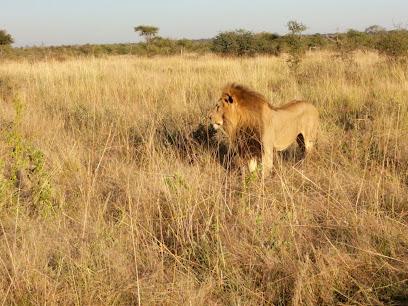
Tau Game Lodge
Experience luxury in the wild at Tau Game Lodge, Madikwe Game Reserve: Big 5 encounters, family fun, and breathtaking views await!

Madikwe Safari Lodge
Experience an unforgettable safari in the malaria-free Madikwe Game Reserve, with luxurious accommodations and exceptional wildlife encounters.

Christ the King Cathedral
Discover Gaborone's spiritual heart at Christ the King Cathedral, an architectural gem and vibrant cultural hub.
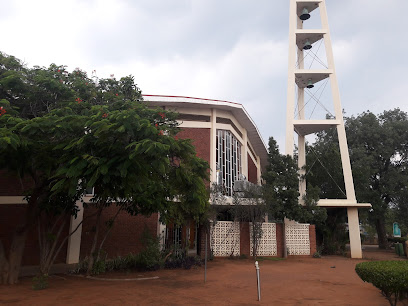
Madikwe Hills Private Game Lodge
Experience unparalleled luxury and thrilling wildlife encounters at Madikwe Hills Private Game Lodge, nestled in the heart of the malaria-free Madikwe Game Reserve.

Rhulani Safari Lodge
Experience luxurious tranquility in the heart of the African bush at Rhulani Safari Lodge, Madikwe Game Reserve. Unforgettable wildlife encounters await!

Crocodile Pools Resort
Escape to Crocodile Pools Resort in Gaborone for relaxation, wildlife encounters, and versatile amenities suitable for leisure and business.
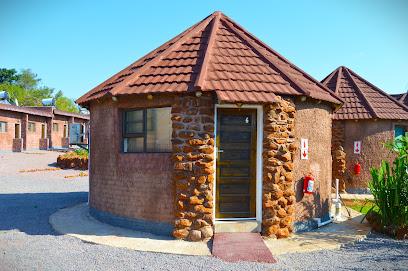
Regent Lodge
Experience Botswana's charm at Regent Lodge in Gaborone, offering cozy accommodations and easy access to local culture and attractions.
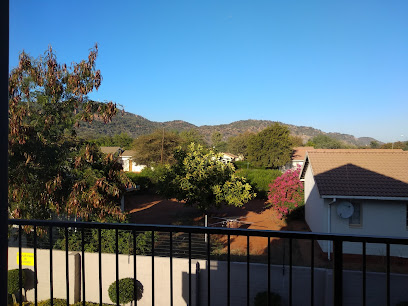
Gaborone Game Reserve
Discover Botswana's wildlife in the heart of the capital at Gaborone Game Reserve: a convenient and captivating natural escape.
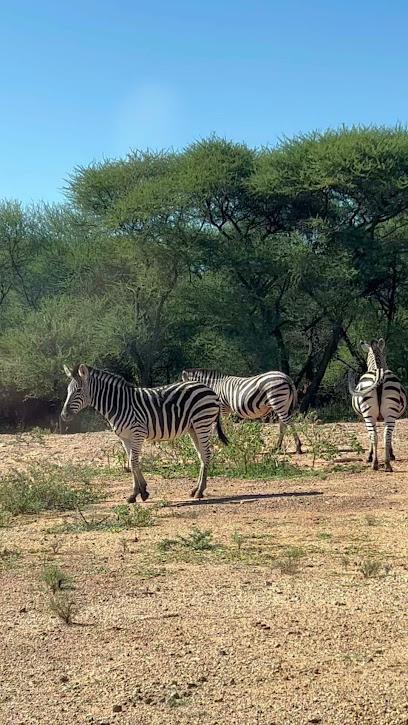
Tlokweng Rose Garden
Discover a serene escape in Gaborone's Tlokweng Rose Garden: a vibrant oasis of roses, perfect for peaceful walks and family outings.
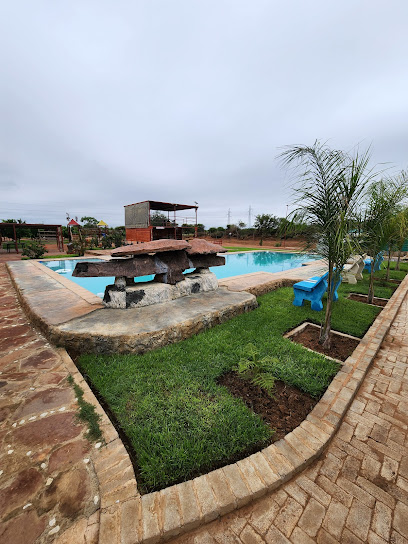
Manyana Rock Paintings
Discover ancient rock art at Manyana, Botswana, showcasing the cultural heritage of the San and Khoikhoi people from 1100-1700 AD.
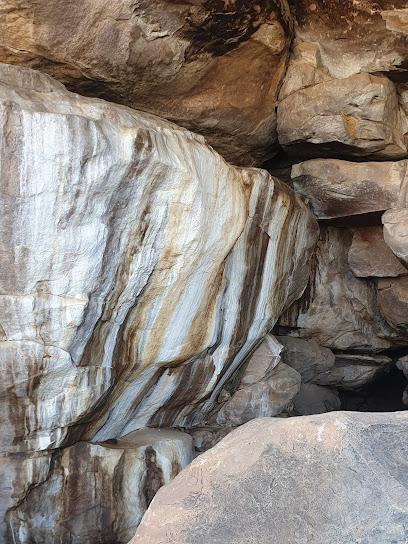
Bahurutshe Cultural Village
Immerse yourself in Botswana's living heritage: crafts, dance, cuisine, and culture await at Bahurutshe Cultural Village near Mmankgodi.
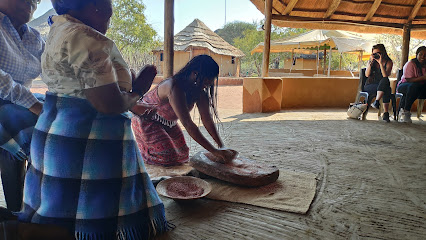
SHASHA CONVENTION CENTRE
Experience the vibrant heart of Gaborone at Shasha Convention Centre, a hub for events, culture, and local traditions in Botswana's capital city.
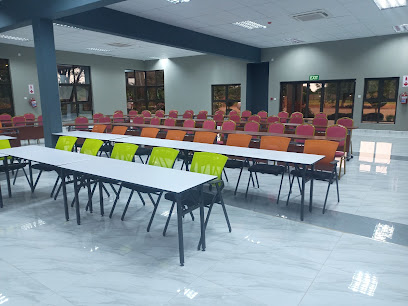
Essential places to dine
Bull & Bush
Experience the vibrant flavors of Botswana at Bull & Bush in Gaborone – a must-visit restaurant for every traveler.
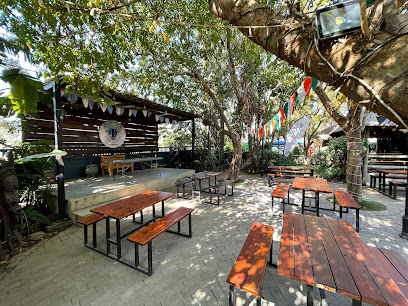
RocoMamas Botswana
Discover delicious gourmet burgers and barbecue delights at RocoMamas Botswana in Gaborone's Airport Junction Mall.
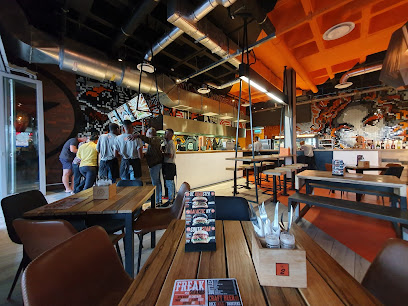
The Daily Grind Cafe + Kitchen
Experience delightful dining at The Daily Grind Cafe + Kitchen in Gaborone – where taste meets comfort in every dish.
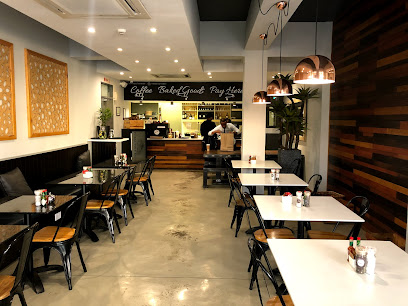
Cappucinos
Experience Gaborone's vibrant culinary scene at Cappucinos - where local flavors meet international cuisine in a warm atmosphere.
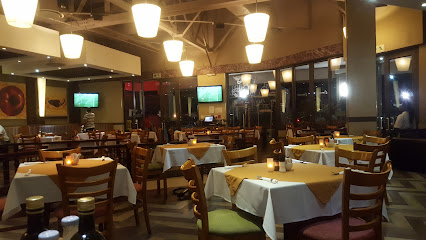
Nando's African Mall
Discover the irresistible peri-peri chicken at Nando's African Mall – where South African flavors meet family-friendly dining in Gaborone.
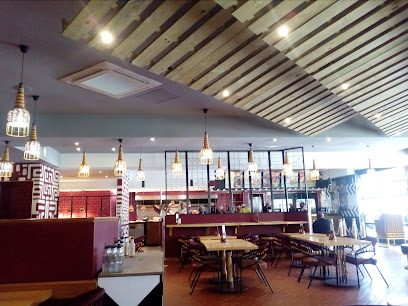
Table50Two
Experience Gaborone's culinary scene at Table50Two - where local flavors meet international flair in an inviting atmosphere.
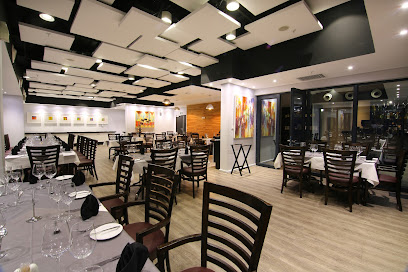
News Cafe Botswana Gaborone
Discover culinary delights and vibrant nightlife at News Cafe Botswana, Gaborone's top restaurant and cocktail bar.
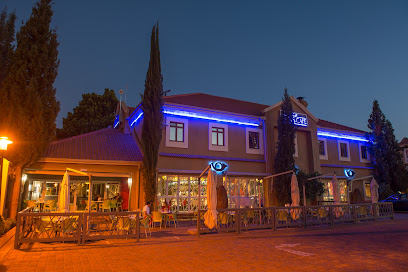
Two Six Seven
Discover Two Six Seven in Gaborone - where exquisite flavors meet stunning riverside views for an unforgettable dining experience.
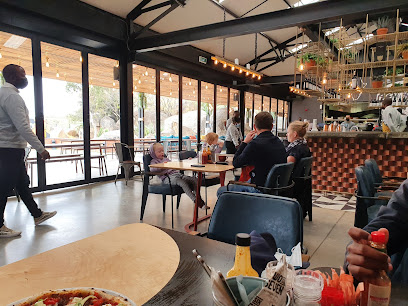
Indiana Spur
Discover the rich flavors of Africa at Indiana Spur in Gaborone - where delicious steaks meet vibrant dining experiences.
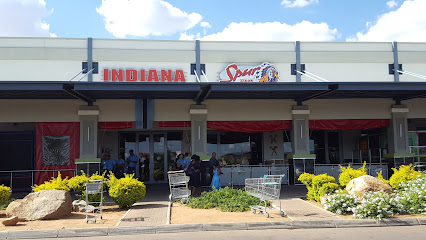
Pavillion Restaurant, Fairground.
Experience the rich culinary heritage of Botswana at Pavillion Restaurant in Gaborone - where local flavors meet global cuisine.
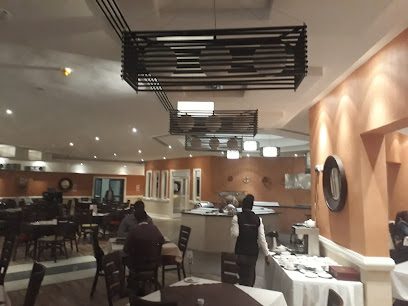
Ocean Basket Airport Junction
Experience the freshest seafood at Ocean Basket Airport Junction in Gaborone – where Mediterranean flavors meet family-friendly dining.
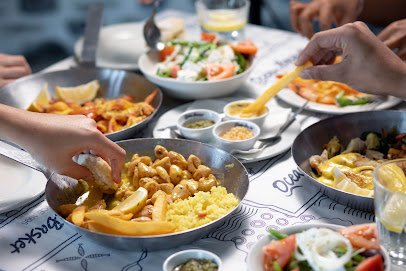
Park 27
Experience the vibrant flavors of Botswana at Park 27 – a culinary gem in Gaborone offering diverse dishes in a welcoming atmosphere.
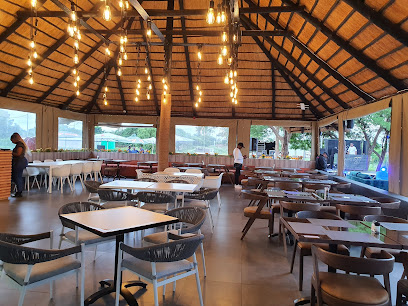
Chutney Indian Restaurant
Savor authentic Indian cuisine at Chutney Indian Restaurant in Gaborone's lively West Gate Mall—an unforgettable culinary experience awaits.
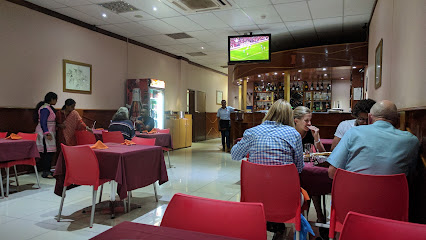
Kebabish Curry And Grill
Discover the authentic flavors of India at Kebabish Curry And Grill in Gaborone's Sebele Shopping Mall.
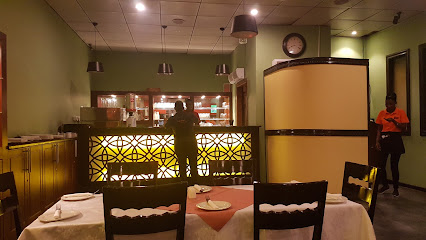
Rodizio Brazillian Restaurant
Savor the essence of Brazil at Rodizio Restaurant - where every meal is an unforgettable celebration of flavor.
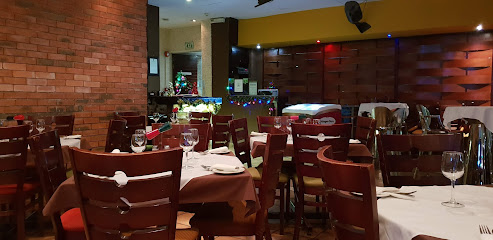
Markets, malls and hidden boutiques
Airport Junction Shopping Centre
Explore diverse shopping, dining, and entertainment at Airport Junction Shopping Centre in Gaborone, Botswana's vibrant retail hub.
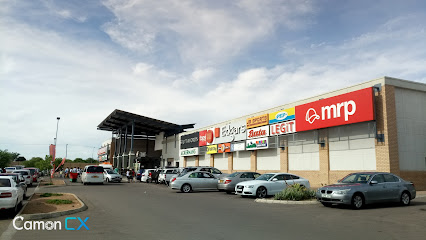
Riverwalk Mall
Experience the best of shopping, dining, and entertainment at Riverwalk Mall in Gaborone, Botswana, a must-visit destination for tourists.
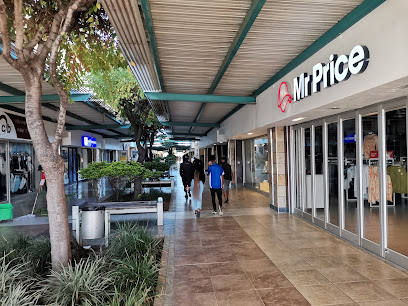
Main Mall
Explore Gaborone's Main Mall for a unique shopping experience blending local culture and modern retail, perfect for every tourist's itinerary.
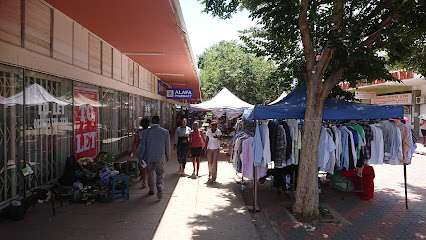
Molapo Crossing Shopping Mall
Experience shopping and dining like never before at Molapo Crossing Shopping Mall, Gaborone's vibrant retail and culinary hub.
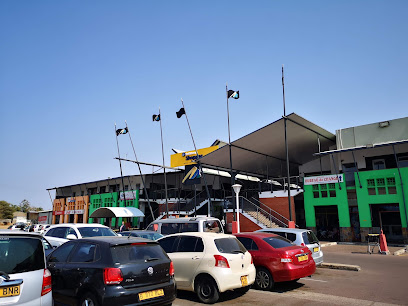
Botswana Craft
Explore Botswana's rich culture at Botswana Craft, where art meets authentic Tswana cuisine in Gaborone's vibrant heart.
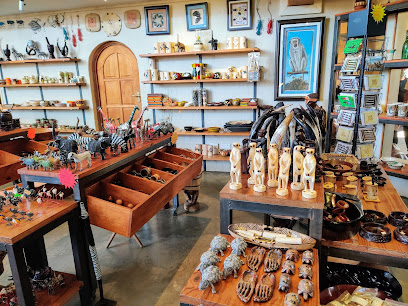
The Fields Shopping Centre
Discover the ultimate shopping experience at The Fields Shopping Centre in Gaborone, where local charm meets international brands.
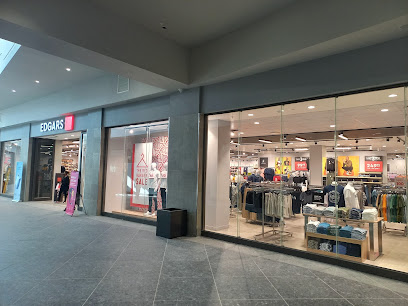
Choppies Supermarket, Railpark Mall
Discover local flavors and essential goods at Choppies Supermarket in Railpark Mall, the heart of Gaborone's shopping scene.
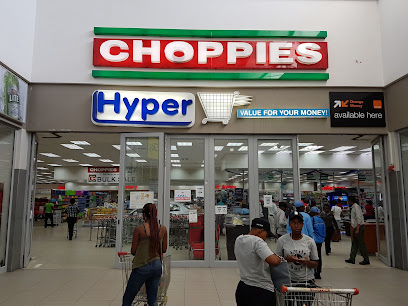
KB Mall
Explore KB Mall in Gaborone for a delightful shopping experience with diverse stores, restaurants, and entertainment in a vibrant atmosphere.
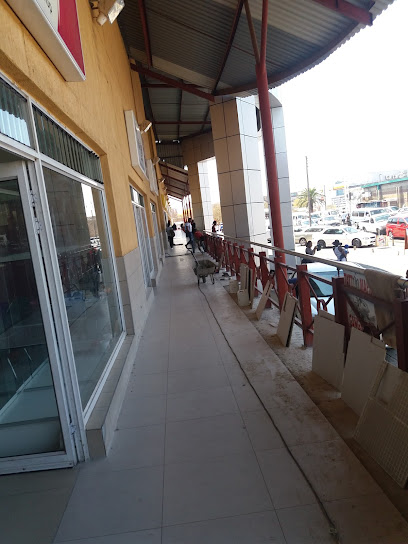
SUPERSPAR Railpark
Explore Gaborone's vibrant local life at SUPERSPAR Railpark, your go-to supermarket for fresh produce and unique local products.
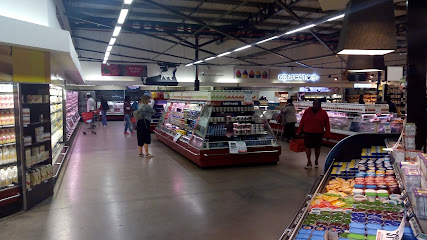
African Mall
Explore the African Mall in Gaborone: A shopping paradise with local flavors and vibrant culture.
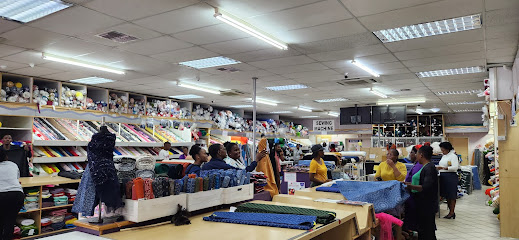
Dynamic Cash & Carry
Experience the vibrant atmosphere of Dynamic Cash & Carry in Gaborone, where affordable beauty and everyday essentials await every traveler.
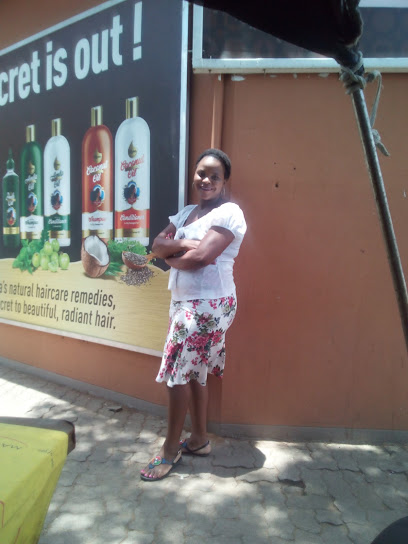
Furniture Paradise
Discover exquisite furniture and beautiful carpets at Furniture Paradise in Industrial, a must-visit for tourists seeking quality home goods.
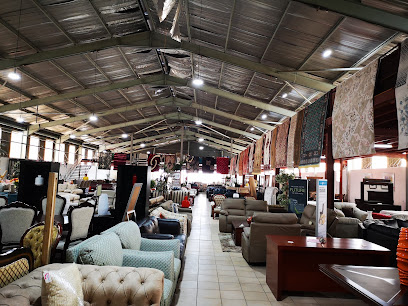
Leather Mark Botswana
Explore the artistry of leather craftsmanship at Leather Mark Botswana, where tradition meets contemporary design in Gaborone.
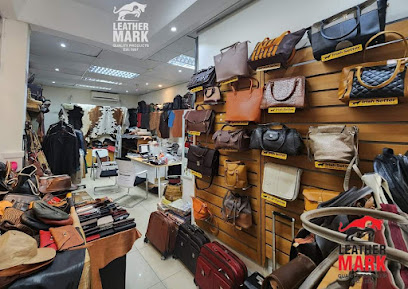
WOOLWORTHS Fields Mall
Discover Woolworths Fields Mall in Gaborone, a top destination for quality groceries and local flavors, perfect for every traveler's shopping needs.
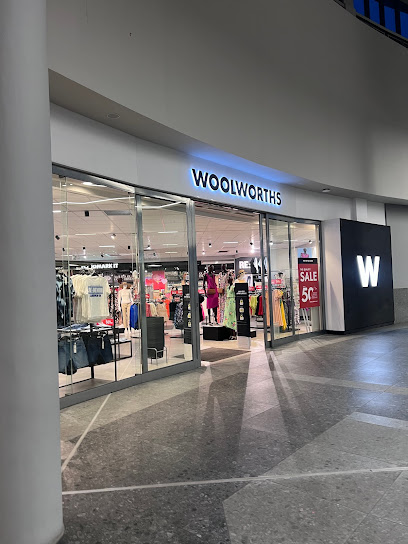
BAHUMI
Experience the vibrant shopping and dining at Bahumi, Gaborone's premier shopping mall with local and international brands.
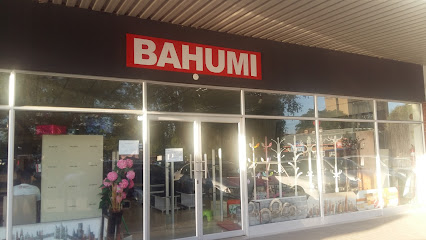
Essential bars & hidden hideouts
Phase 4 Bar
Discover the vibrant nightlife of Gaborone at Phase 4 Bar, where locals and travelers unite for unforgettable evenings filled with laughter and great drinks.
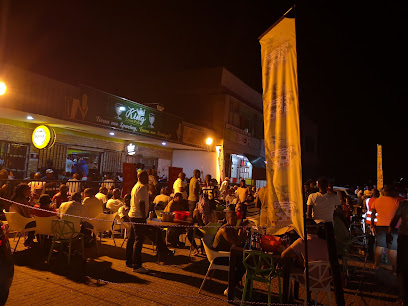
Cappello Masa
Experience the vibrant nightlife at Cappello Masa in Gaborone, where great drinks and a lively atmosphere await every visitor.
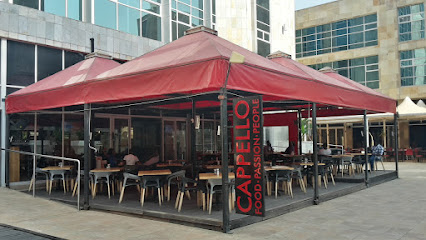
Millenium Jazz Restuarant
Discover the lively atmosphere and delicious offerings at Millenium Jazz Restaurant, a must-visit bar in Gaborone for nightlife enthusiasts.
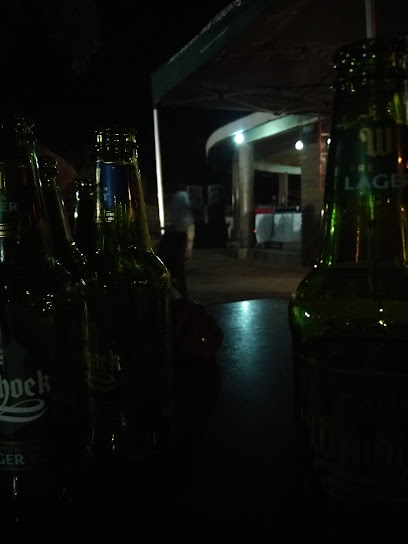
Leobah's Pub - Gaborone
Experience the vibrant atmosphere at Leobah's Pub in Gaborone, where locals and travelers enjoy lively nights filled with drinks and entertainment.
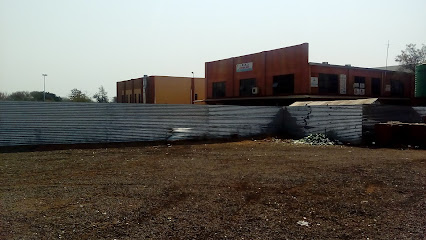
PAPA GEE'S BAR
Discover the vibrant nightlife of Gaborone at Papa Gee's Bar, where local culture meets an inviting atmosphere and a diverse drink selection.
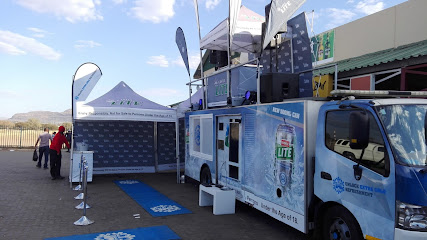
The PRINCETON LOUNGE
Experience the vibrant nightlife at The Princeton Lounge in Gaborone, where drinks, music, and a lively atmosphere await you.
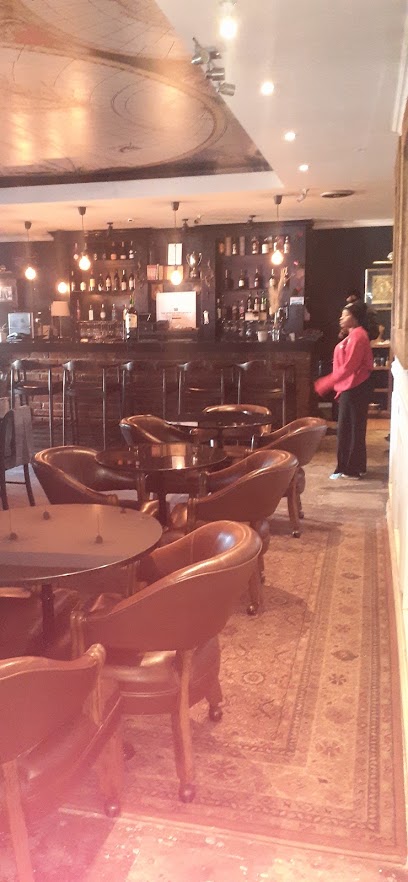
Harolds BAR
Experience the vibrant nightlife at Harolds BAR in Gaborone, where friendly service and a diverse drink menu await you.
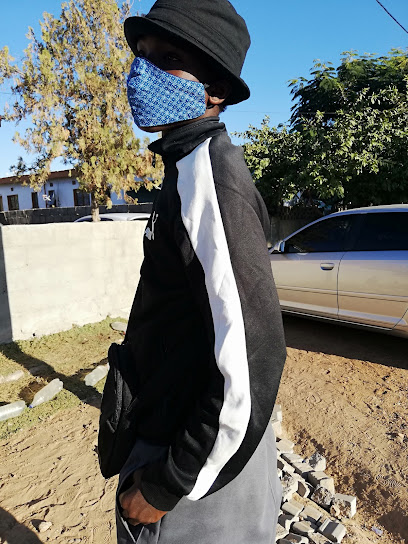
Leobah's Pub & Grill
Experience the lively charm of Leobah's Pub & Grill in Gaborone for unforgettable dining and nightlife, blending local flavors with a vibrant atmosphere.
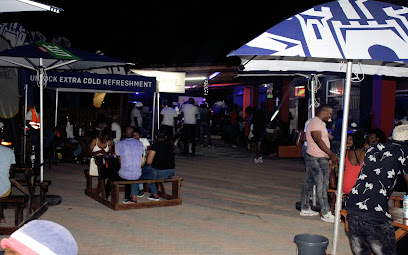
Main Deck Restaurant & Bar
Discover the vibrant flavors of Gaborone at Main Deck Restaurant & Bar, a perfect blend of dining and nightlife with local and international cuisine.
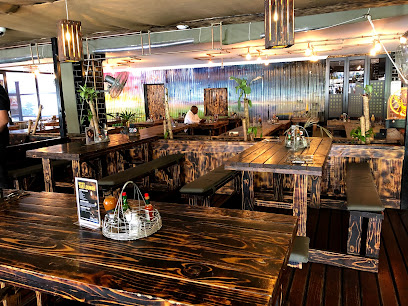
Lebza Bar
Discover the vibrant nightlife of Gaborone at Lebza Bar, where great drinks and a lively atmosphere await.
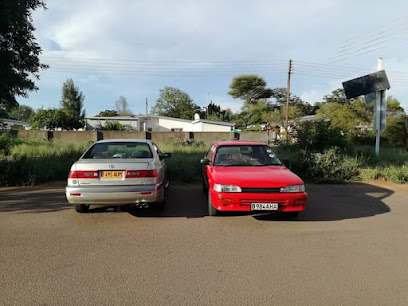
H Joint Bar
Experience the vibrant nightlife of Gaborone at H Joint Bar, where drinks and good company await in a lively atmosphere.
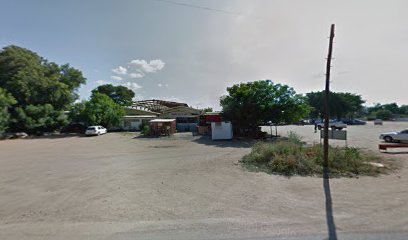
Pub 22
Discover the lively Pub 22 in Gaborone, a local bar offering a vibrant atmosphere, delicious drinks, and a taste of Botswana's nightlife.
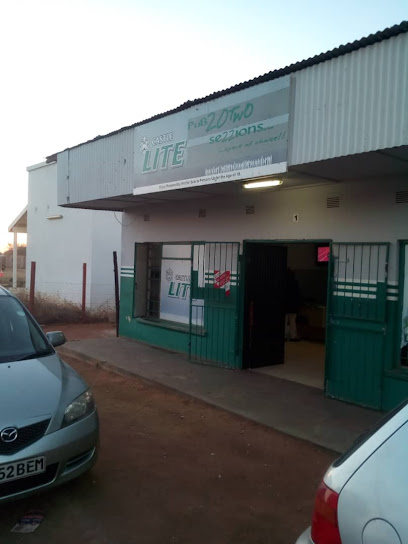
Locust Bar
Discover the vibrant nightlife of Gaborone at Locust Bar, a local favorite for drinks and good company in Botswana's capital.
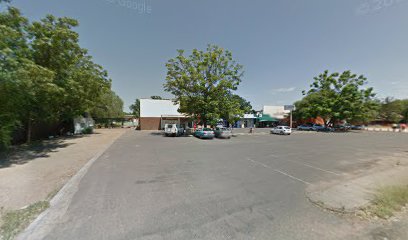
Glamorous Pub
Experience the vibrant nightlife of Gaborone at Glamorous Pub, a local favorite for drinks, socializing, and unforgettable moments.
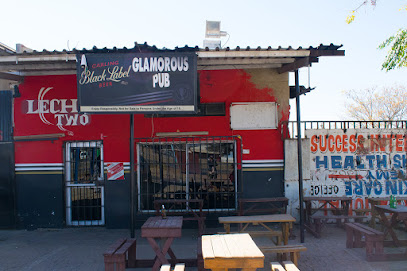
Local Phrases
-
- HelloDumela
[doo-meh-lah] - GoodbyeTsamaya sentle
[tsah-mah-yah sen-tleh] - YesEe
[ee] - NoNnyaa
[nn-yah] - Please/You're welcomeKe kopa
[keh koh-pah] - Thank youKe a leboga
[keh ah leh-boh-gah] - Excuse me/SorryPeleka
[peh-leh-kah] - How are you?O kae?
[oh kah-eh?] - Fine. And you?Ke teng. Le wena?
[keh te-ng. leh weh-nah?] - Do you speak English?O bua se se tsotlhe?
[oh boo-ah seh seh tsot-leh?] - I don't understandGa ke itse
[gah keh eet-seh]
- HelloDumela
-
- I'd like to see the menu, pleaseKe kopa go bona menu
[keh koh-pah goh boh-nah meh-noo] - I don't eat meatGa ke itse nyama
[gah keh eet-seh nyah-mah] - Cheers!Tlala
[tlah-lah] - I would like to pay, pleaseKe kopa go dira
[keh koh-pah goh dee-rah]
- I'd like to see the menu, pleaseKe kopa go bona menu
-
- Help!Boitumelo!
[boy-too-meh-loh!] - Go away!Tshameka!
[tsah-meh-kah!] - Call the Police!Bula mpolele!
[boo-lah mm-poh-leh-leh!] - Call a doctor!Bula mogopolo!
[boo-lah mo-go-po-lo!] - I'm lostKe a kgotsofatsa
[keh ah koh-tsow-fat-sah] - I'm illKe a bolawa
[keh ah boh-lah-wah]
- Help!Boitumelo!
-
- I'd like to buy...Ke kopa go aga...
[keh koh-pah goh ah-gah...] - I'm just lookingKe gopola
[keh goh-poh-lah] - How much is it?E be ke eng?
[eh beh keh ehh-ng?] - That's too expensiveKe e le mahala
[keh eh leh mah-hah-lah] - Can you lower the price?O ka dira pele?
[oh kah dee-rah peh-leh?]
- I'd like to buy...Ke kopa go aga...
-
- What time is it?E monate jang?
[eh moh-nah-teh jah-ng?] - It's one o'clockKe moepeng
[keh moh-eh-peng] - Half past (10)Boraro jwa (le kgotla)
[boh-rah-roh jwah (leh koh-tlah)] - MorningMosetsana
[moh-seh-tsah-nah] - AfternoonMotsogata
[moh-tsuh-gah-tah] - EveningSentle
[sen-tleh] - YesterdayNgwaga o tswa
[ng-wah-gah oh tswah] - TodayNaledi
[nah-leh-dee] - TomorrowNnyaa
[nn-yah] - 1Moepeng
[moh-eh-peng] - 2Bobedi
[boh-beh-dee] - 3Boraro
[boh-rah-roh] - 4Bone
[boh-neh] - 5Boroko
[boh-roh-koh] - 6Borarong
[boh-rah-rong] - 7Bosenyegile
[boh-seh-nyeh-gi-leh] - 8Borobetse
[boh-roh-beh-tseh] - 9Borotlhe
[boh-roh-tlhe] - 10Lesepe
[leh-seh-peh]
- What time is it?E monate jang?
-
- Where's a/the...?Eng ke ya...?
[eh-ng keh yah...?] - What's the address?E tla ka kae?
[eh tlah kah kah-eh?] - Can you show me (on the map)?O ka nka o itse (go nkupelele)?
[oh kah n-kah oh eet-seh (goh n-koo-peh-leh-leh)?] - When's the next (bus)?Ke eng metsi a ka nna?
[keh ehh-ng meh-tsee ah kah n-nah?] - A ticket (to ....)Motikete (go ....)
[moh-tee-keh (goh ....)]
- Where's a/the...?Eng ke ya...?
History of Gaborone
-
Gaborone, the capital city of Botswana, was founded in 1964. The city was named after Chief Gaborone of the Tlokwa tribe, who once lived in the area. Initially called Gaberones, it was chosen as the capital due to its strategic position near the railway and proximity to South Africa.
-
Botswana gained independence from British colonial rule on September 30, 1966. Prior to independence, the capital was in Mafeking, South Africa. Gaborone was selected as the new capital because it was centrally located, had access to clean water from the Gaborone Dam, and had enough space for expansion.
-
The Gaborone Dam, completed in 1965, is a critical infrastructure project that has shaped the development of the city. The dam provides water to Gaborone and the surrounding areas, making it possible for the city to sustain its population and industries.
-
Since its establishment, Gaborone has experienced rapid economic growth and urbanization. The discovery of diamonds in Botswana in the 1960s significantly contributed to the country's wealth, with Gaborone becoming a hub for business and government activities. The city has expanded with modern infrastructure, shopping centers, and residential areas.
-
Gaborone is home to several cultural landmarks and institutions that reflect the rich heritage of Botswana. The National Museum and Art Gallery, established in 1968, showcases Botswana's art, culture, and history. The Three Dikgosi Monument, unveiled in 2005, honors three tribal chiefs who played crucial roles in Botswana's independence.
-
Gaborone is the political heart of Botswana, known for its stable and democratic governance. The city houses the National Assembly, the Office of the President, and various government ministries. Botswana's commitment to democracy and good governance has made Gaborone a symbol of political stability in Africa.
-
Gaborone is a center for education and research in Botswana. The University of Botswana, established in 1982, is the country's premier institution of higher learning. Gaborone also hosts several research institutes, including the Botswana Institute for Technology Research and Innovation (BITRI) and the Botswana-Harvard AIDS Institute Partnership.
-
As Gaborone continues to grow, it faces modern challenges such as urban sprawl, traffic congestion, and environmental sustainability. The city is working on various development projects to address these issues, including urban planning initiatives, public transportation improvements, and green energy solutions.
Gaborone Essentials
-
Gaborone is served by Sir Seretse Khama International Airport (GBE), located approximately 15 kilometers north of the city center. Direct flights are available from major cities like Johannesburg, Addis Ababa, and Nairobi. From the airport, you can take a taxi or use a shuttle service to reach your accommodation in the city. Alternatively, Gaborone is accessible by road from neighboring countries like South Africa and Zimbabwe. Regular bus services connect Gaborone with Johannesburg and Pretoria.
-
Gaborone has a variety of transportation options. Taxis are readily available and a popular choice for getting around the city. Public buses and combis (minibuses) offer an affordable way to travel, although they can be crowded and less punctual. Car rentals are also available for those who prefer to explore the city and its surroundings at their own pace. Ride-hailing services like Uber and Bolt are not yet widely available, so plan accordingly.
-
The official currency in Botswana is the Botswana Pula (BWP). Credit and debit cards are widely accepted in hotels, restaurants, and larger retail stores. However, it is advisable to carry some cash for smaller establishments and markets. ATMs are plentiful throughout Gaborone, but ensure your card is compatible with local machines. Currency exchange services are available at the airport, banks, and some hotels.
-
Gaborone is generally considered safe for tourists, but like any urban area, it is important to stay vigilant. Avoid walking alone at night, especially in less populated areas. Neighborhoods such as Old Naledi and Broadhurst have higher crime rates, so exercise extra caution if you need to visit these areas. Keep an eye on your belongings in crowded places and avoid displaying expensive items.
-
In case of emergency, dial 999 for police, 998 for fire, and 997 for medical emergencies. Hospitals and clinics are available in Gaborone, with Princess Marina Hospital being the largest public hospital. Private clinics and hospitals such as Gaborone Private Hospital offer high-quality care. It is highly recommended to have travel insurance that covers medical emergencies. For minor health issues, pharmacies are available throughout the city.
-
Fashion: Do dress modestly in public places; avoid overly revealing clothing. Religion: Do respect local customs and places of worship. Remove your shoes when entering mosques and avoid taking photographs inside without permission. Public Transport: Do be courteous and offer seats to the elderly. Don't eat or drink on public transport. Greetings: Do greet people with a handshake. It is polite to use titles and surnames unless invited to use first names. Eating & Drinking: Do try local dishes like seswaa and morogo. Don't refuse food or drink offered by locals as it is considered impolite.
-
To experience Gaborone like a local, visit the Gaborone Dam for a relaxing picnic or a walk. The Main Mall is a popular spot for shopping and people-watching. Engage with locals at the Botswana Craft Centre, where you can purchase handmade crafts and souvenirs. Don't miss the chance to visit the Kgale Hill for a hike, offering panoramic views of the city. For a unique dining experience, try the local street food at places like the Gaborone Bus Rank.
Trending Landmark in Gaborone
-
Riverwalk Mall
-
Peermont, The Grand Palm
-
Mokolodi Nature Reserve
-
Optico Center Gaborone
-
Sir Seretse Khama International Airport
-
Lion Park Resort
-
The Three Dikgosi Monument
-
Tsholofelo Park
-
University of Botswana Indoor Sports Centre
-
Gaborone Yacht Club
-
National Museum and Art Gallery
-
Christ the King Cathedral
-
Crocodile Pools River Safaris & Chalets
-
Jamia Mosque
-
National Botanical Garden
Nearby Cities to Gaborone
-
Things To Do in Molepolole
-
Things To Do in Lobatse
-
Things To Do in Mahalapye
-
Things To Do in Pretoria
-
Things To Do in Serowe
-
Things To Do in Palapye
-
Things To Do in Johannesburg
-
Things To Do in Selebi-Phikwe
-
Things To Do in Polokwane
-
Things To Do in Francistown
-
Things To Do in Kimberley
-
Things To Do in Bloemfontein
-
Things To Do in Butha-Buthe
-
Things To Do in Leribe
-
Things To Do in Nelspruit












